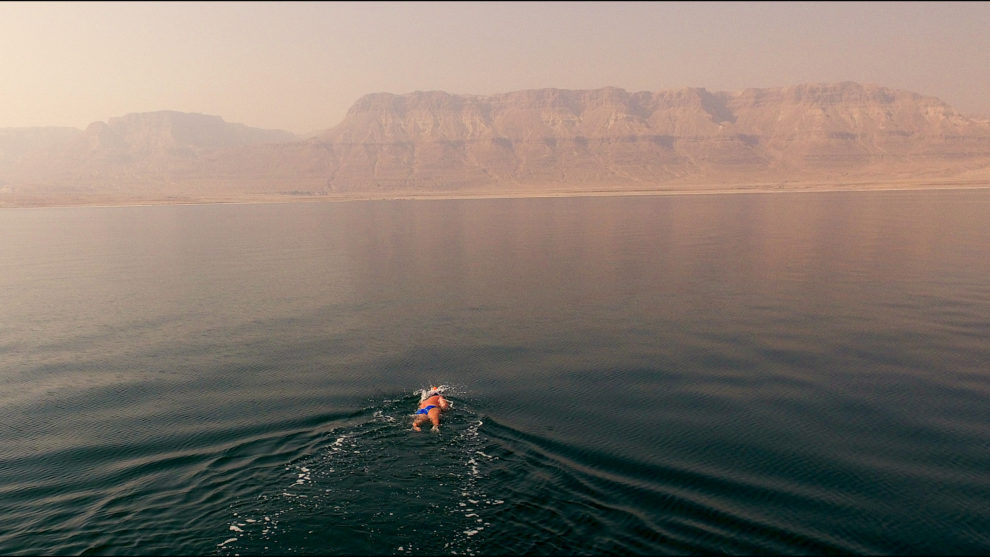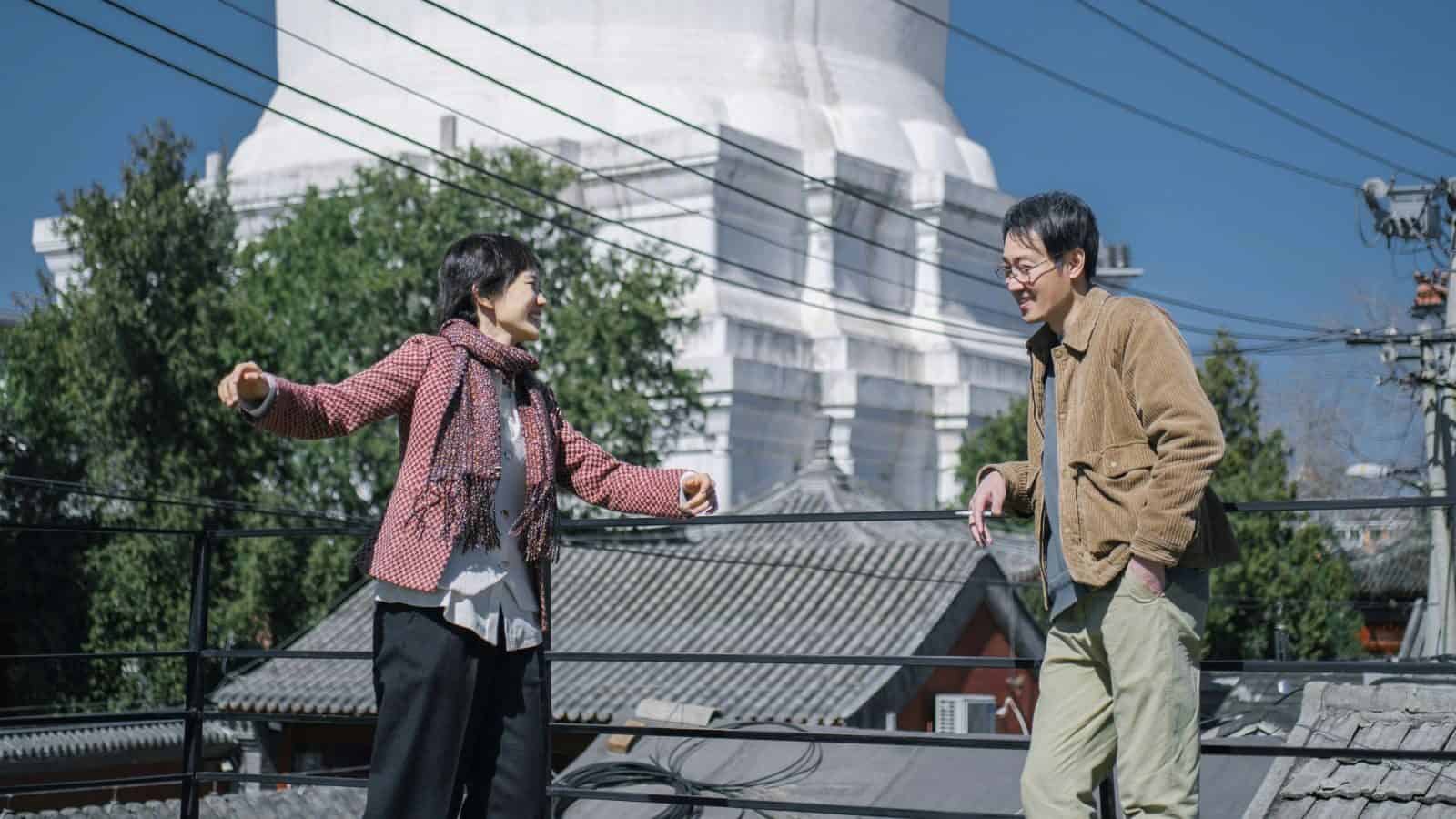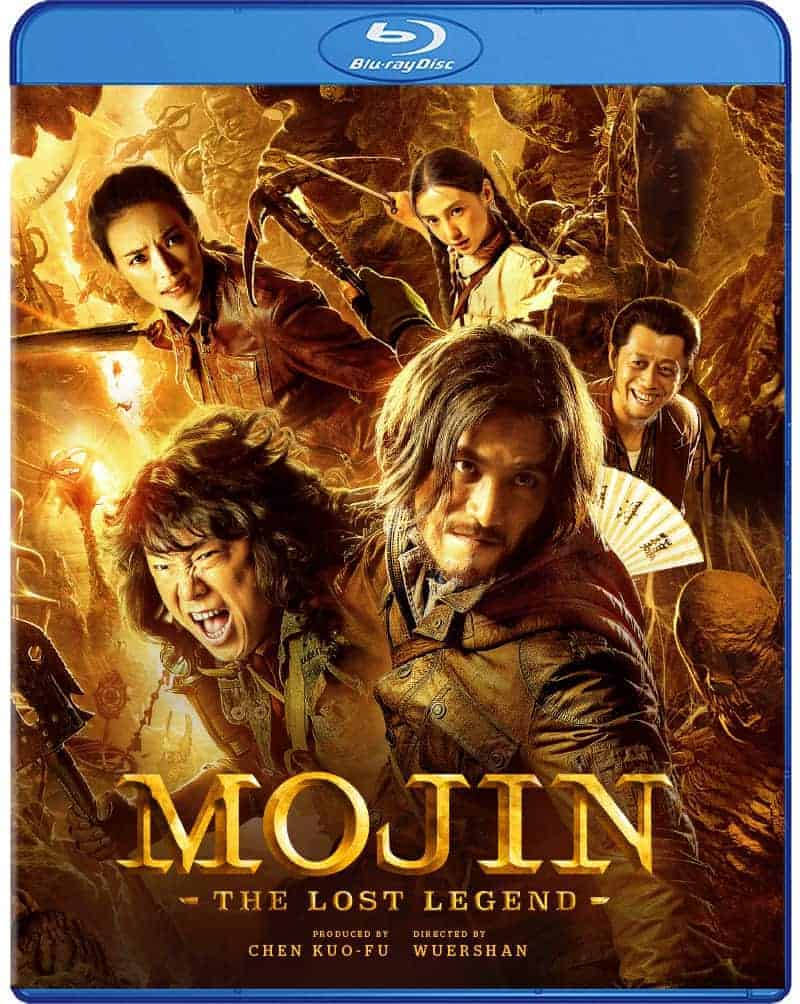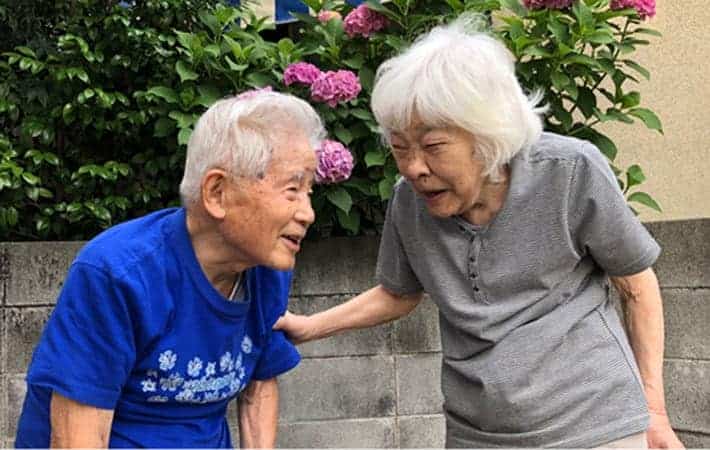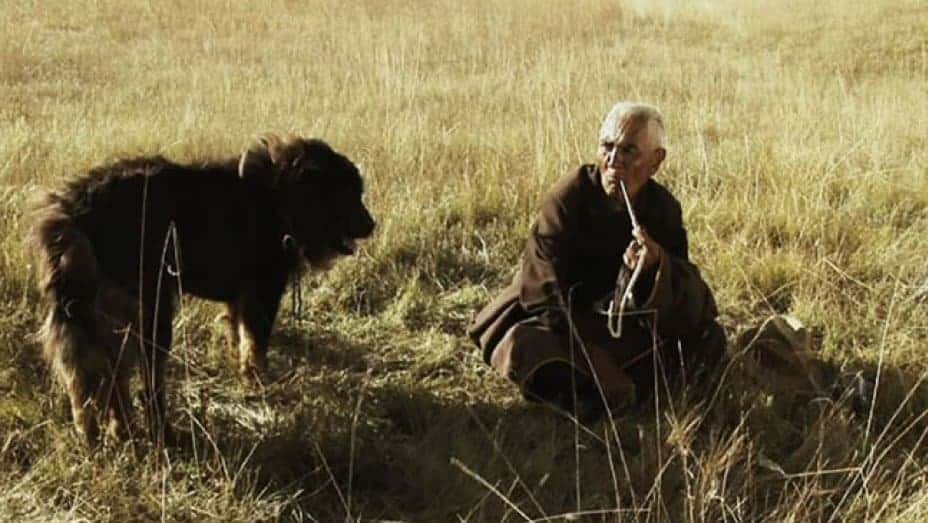The Dead Sea is a truly unique salt-lake, as it is the lowest point on Earth and has immense geographical, biological and historical value. As a spot from the 80s in the beginning of the documentary shows, the area was an attraction of tourists from all over the world, who could swim and also enjoy the culture of three different countries that share the location, Israel, Jordan and Palestine. However, due to years of conflict, and because, as the documentary also informs, the fighting countries consider water a commodity whose control is crucial for the war, the Dead Sea is drying up, causing widespread damage, including huge sinkholes, abandoned beaches and roads completely destroyed. Three men, Munqeth, a Jordanian, Oded, an Israeli and Yusuf, a Palestinian are disgusted by the fact and the conflict of their countries, and decide to draw international attention to what is happening in the area, by swimming, along with other people from the three nations, across the Sea, from Jordan to Israel. Their effort is extremely hard, both because the water is toxic to ingest, but also because they have to convince the authorities of all three countries to allow them to achieve their goal. “Guardians of the Dead Sea” follows them in their efforts.
“Guardians of the Dead Sea” is screening at the 24th Thessaloniki Documentary Festival
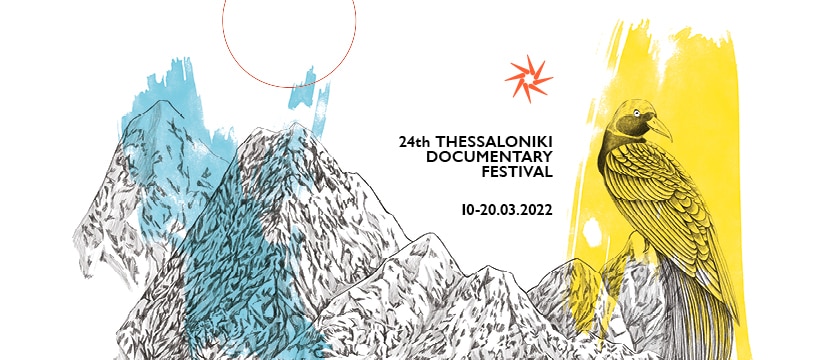
As such, the documentary unfolds in three different but intermingling levels. The first one is to present the history of the area and the reasons that led to its demise, while highlighting both its past, but mostly its current situation, through a number of rather impressive shots. Particularly the panoramic ones that are shot by drones are magnificent to watch, despite the fact that the sinkholes are essentially a proof to the destruction taking place in the area.
The second one focuses on the effort of the three men and their organization, EcoPeace, to arrange the whole thing, while finding more volunteers from all three countries, in order to give their action a more widespread impact. Their struggle, and occasional despair, as politics but also racism and hatred seem to be deeply rooted in the hearts of many people, and not just politicians, emerges as one of the most dramatic aspects of the movie.
The third one derives from this last element, as the politics of the area, and particularly the impact the armies of the three countries have in decision-making is also highlighted, eventually emerging as one of the most (if not the most) significant issues they face.
The way these three intermingle and connect allows the documentary to flow quite smoothly for the most part, with Tzipi Raz's editing emerging as ideal in that regard. Some slightly sentimental moments are not missing, but in general, the approach the directors implement is quite realistic, with the moments they actually swim also following the same path, avoiding to appear heroic. Furthermore, and despite the relative optimism that dominates the narrative after a point, the finale highlights the fact that their efforts have some impact, but are not so significant as to change the situation in the area, in a rather pragmatist comment.
“Guardians of the Red Sea” is an easy to watch documentary in its 78 minutes, with the three axes it revolves around working quite well in that regard, while also highlighting the situation in Dead Sea in the most eloquent fashion.


